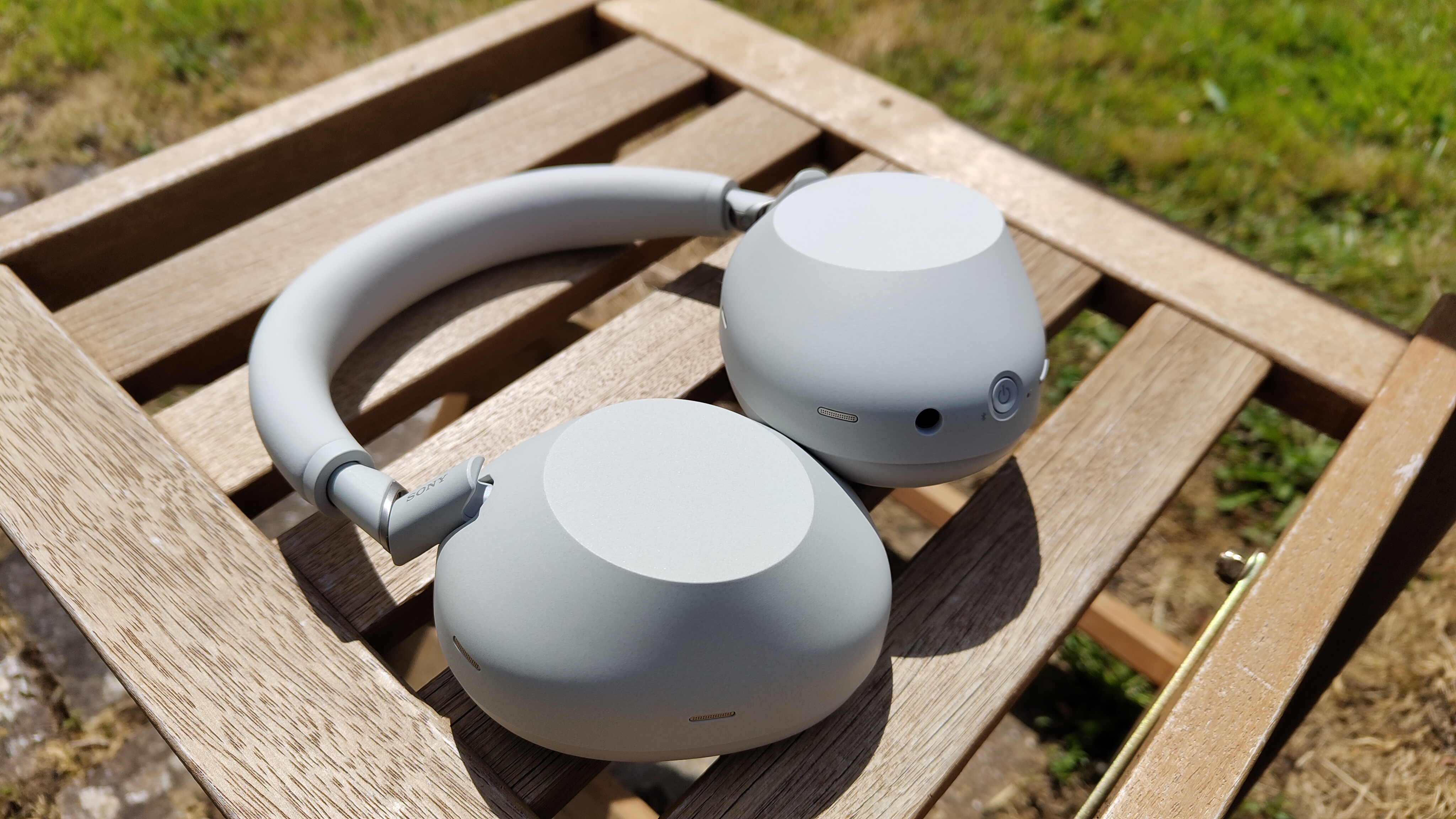What Hi-Fi? Verdict
This compact and feature-friendly projector is a fine performer for the money
Pros
- +
Vivid but balanced picture
- +
Great portable size and features
- +
Decent spread of sound
Cons
- -
Sound system lacks impact
- -
Blacks could be deeper
Why you can trust What Hi-Fi?
The Anker Nebula Solar Portable is the most recent addition to Anker Innovation’s popular all-in-one projector family. It’s pitched as part of the Shenzhen company’s ‘Go Anywhere’ range, which means no wires are required.
Fitted with a rechargeable battery, it can produce a Full HD, HDR picture of up to 120 inches for as long as three hours before it needs to plug it into the mains again. That’s enough for most films, apart from maybe Gone With The Wind.
Pricing
The Anker Nebula Solar Portable costs £600 ($520), but it is not to be confused with the mains-only Nebula Solar, which is temptingly cheaper at £400 ($420). Specs-wise, the two portable projectors are identical, so it's worth asking yourself whether you truly need battery operation or can manage with something that's for home use only.
Build
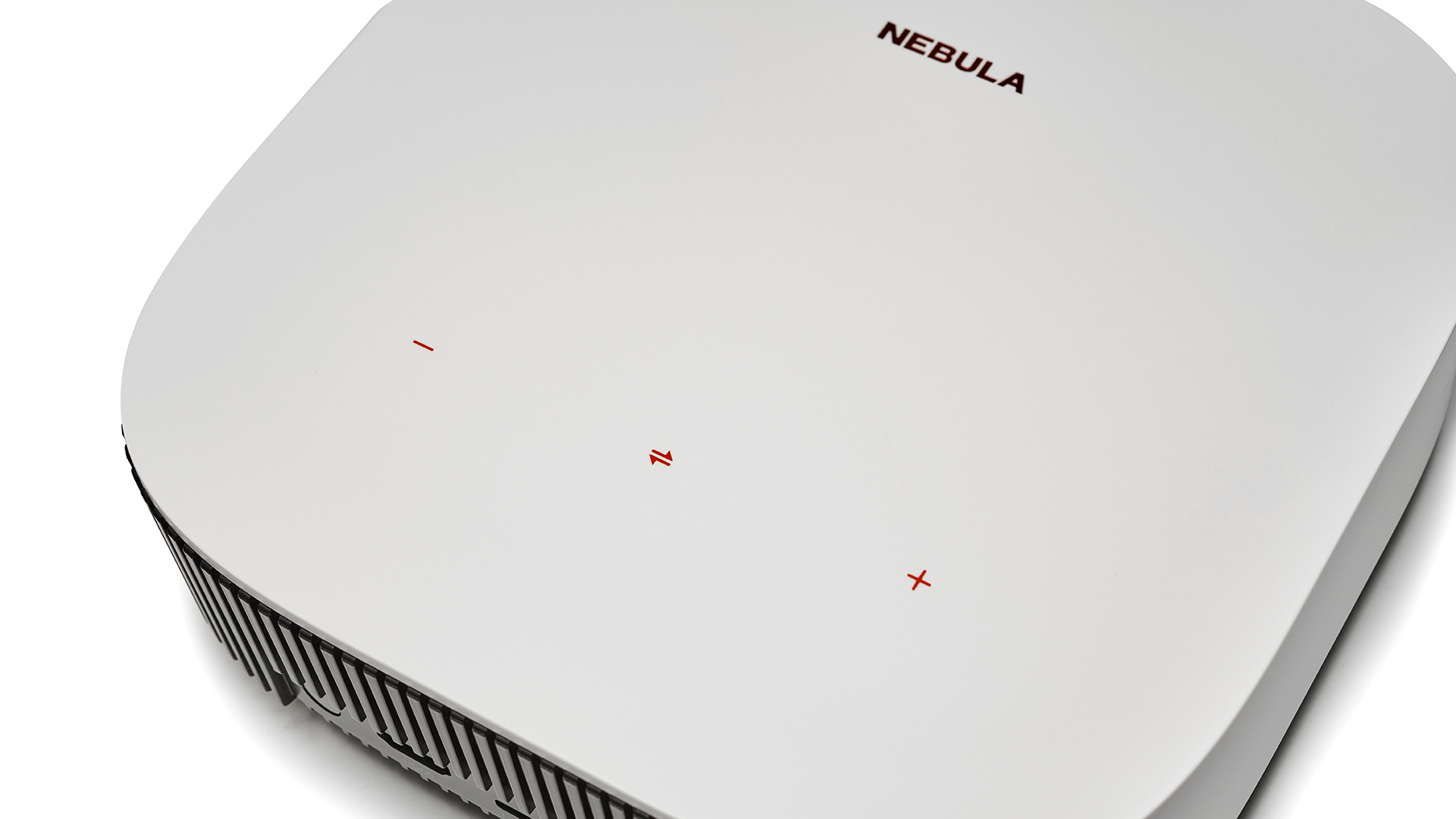
The Solar Portable brings an interesting third option to the Nebula Go Anywhere Series and, at just 6cm tall and 19cm wide, it makes more sense than the bulky and similarly priced Nebula Mars models.
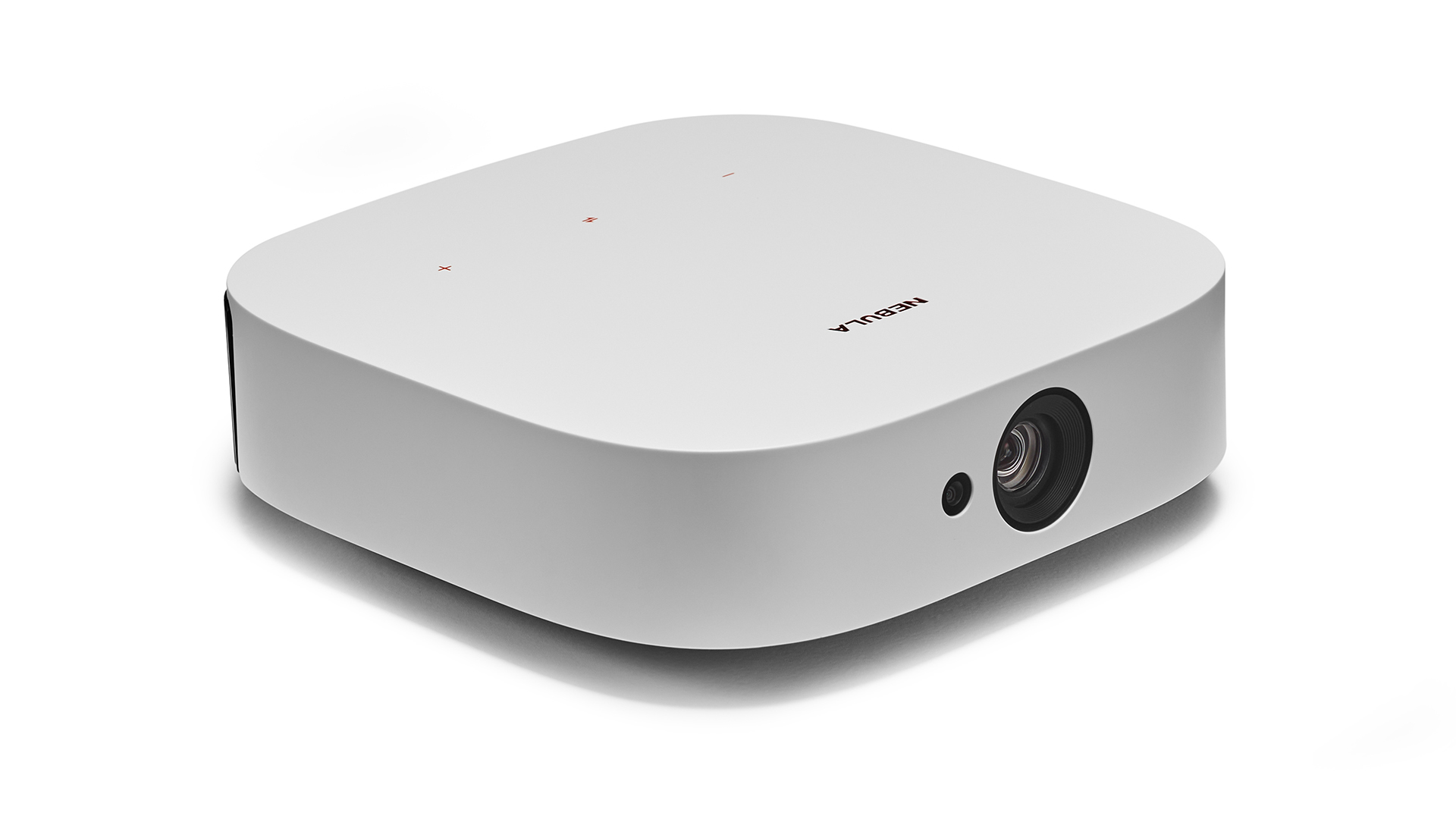
Resolution 1080p HDR output, 4K input support
Storage 8GB
Inputs USB-A, HDMI 2.0 (ARC)
Audio output 2x 3W
Brightness 400 ANSI lumens
Dimensions (hwd) 6 x 19 x 19cm
Weight 1.4kg
It also offers an upgrade in resolution from 720p to Full HD with HDR over the Mars machines, although the LED light output on the Solar Portable is just 400 ANSI-lumens – 100 less than the Nebula Mars II Pro.
The main forfeit is with the scale of the sound system. The smaller box of the Solar Portable leaves room for only a 2x 3W set-up compared to the far beefier potential of the Mars 2's 2x 10W array.
At the core of the Solar Portable DLP projector is a single 0.23-inch DMD (digital micromirror device) with native 1920 x 1080 resolution. The LED has a lifespan of over 30,000 hours. The fixed lens has a throw ratio of 1.2:1. All standard stuff for a projector this size and price.
The latest hi-fi, home cinema and tech news, reviews, buying advice and deals, direct to your inbox.
On the top, there are some physical controls for power, volume and Bluetooth speaker mode but you’ll mostly use the standard Nebula voice remote for all of that as well as autofocus and navigational keys.
On the rear edge are the three inputs – an HDMI 2.0 (with ARC), which can accept anything up to 4K content; a USB-A for flash drives and a USB-C for power. The one frustration is that there’s no 3.5mm audio out, so you can't connect a pair of wired headphones. Fortunately, you can attach a wireless speaker via Bluetooth or a soundbar via the HDMI socket in order enjoy your film and TV audio on a larger scale.
Features
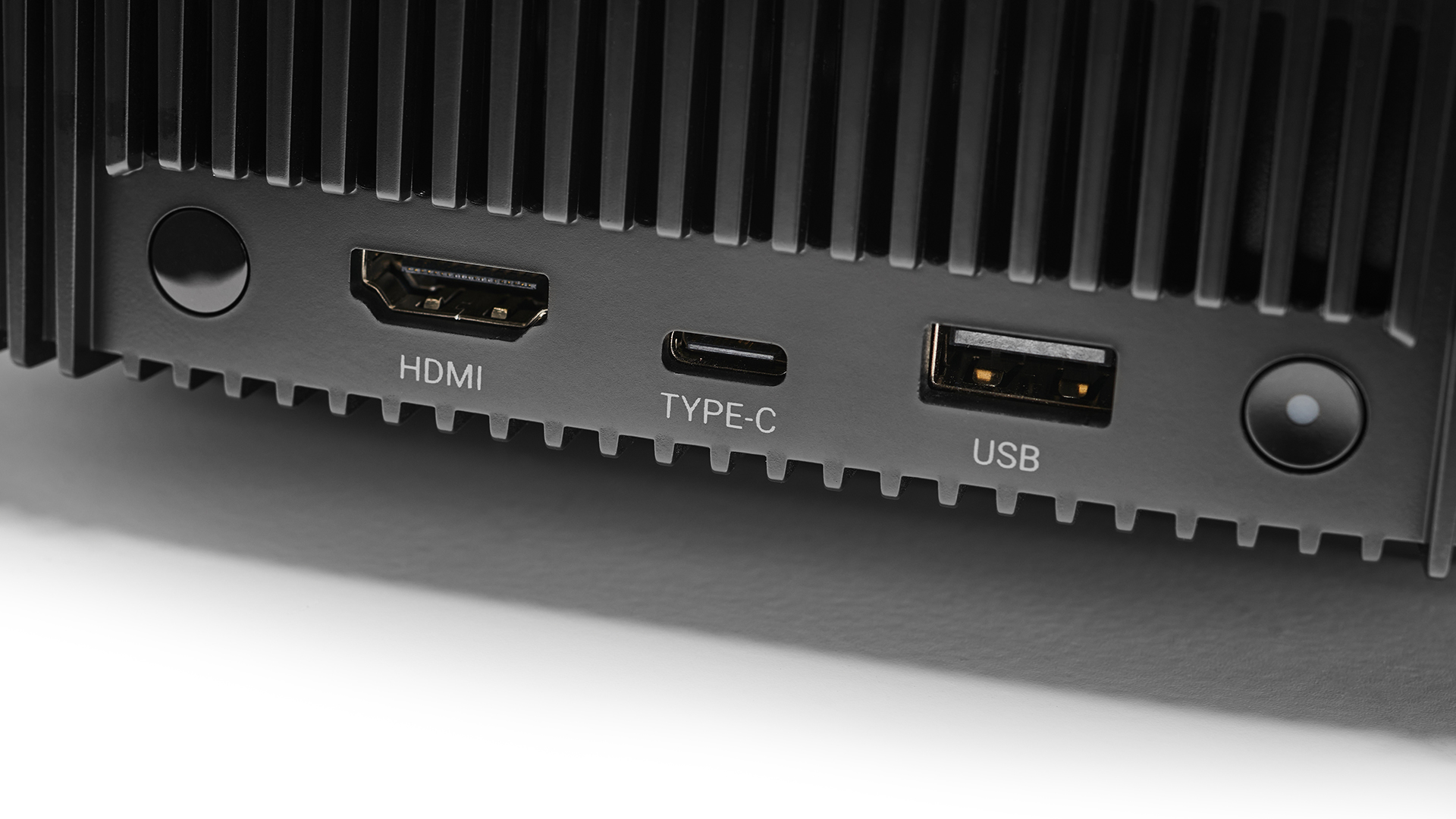
The Nebula range doesn't have apps for Netflix or many of the UK catch-up apps, including iPlayer, via its Android TV operating system, but Anker attempts to make up for this by supporting the Netflix mobile service within its Nebula Connect app, which also includes some handy software for screen mirroring from iOS devices.
The app isn’t great though. You can only navigate it using the rather awkward Nebula mobile app and the content doesn’t look good. We find we’re better off using Android TV’s built-in Chromecast functionality for Netflix.
Other apps you’ll need to cast include Now, All 4, Rakuten, UKTV Play and Britbox. Some apps allow you to download to the Solar Portable’s 8GB internal drive, or you can get around these services altogether by loading your own files.
Set-up is typically easy thanks to two handy features. First is the autofocus/auto-keystone system, which kicks in each time the projector is moved or switched on. Autofocus is generally excellent and you can give it a tweak using the navigational controls on the remote if needed. Keystone offers a decent starting place, but it’s best done manually if you’re off-axis.
The Anker Nebula Solar Portable keystone correction is capable of adjusting up to +/-40 degrees in both planes. The software also allows you to move each corner of the picture individually to even out the shape of the image.
The second small but significant add-on is the built-in stand on the bottom of the device. You can use this flap to adjust the angle of projection by up to 13 degrees, which is enough when positioning on something fairly low down such as a coffee table.
Picture
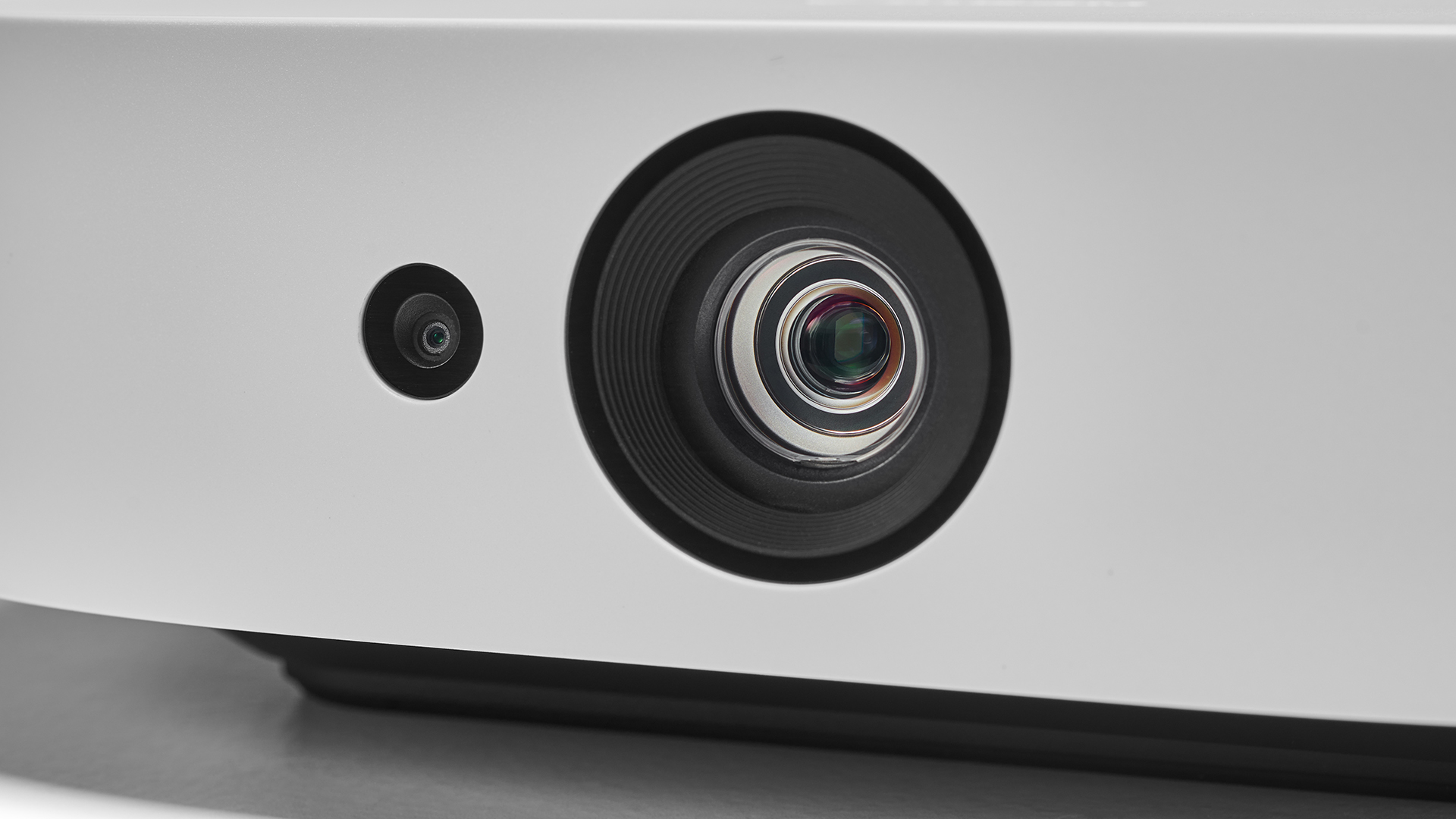
The Anker Nebula Solar Portable is a step down in brightness from the Epson EF-12 and Xgimi Halo, so is less well suited to viewing in bright conditions. It’s still a watchable picture with the lights dimmed, though, and while it might not be as blinding as the Halo, the tonal balance of the Solar's picture is far better than that of the more expensive Xgimi machine.
Spider-Man: Homecoming on 4K Blu-ray is a steady and enjoyable watch. The colours of Peter’s yellow school blazer on top of his blue and red suit look great – vibrant but still rooted in reality. In the scene in the Deep Storage Vault, there is plenty of detail to the fibres of his clothing, and also a good sense of depth to the huge concrete bunker in the background.
The Standard preset is the closest to ideal, but we’d recommend heading into the User area and upping the contrast and colour. As with most portable projectors, there’s no motion processing to try out. Fortunately, there’s little blur and not an awful lot of judder even as we watch the fast action scenes of Peter riding the tops of trucks and buses as he web-slings his way to help his friends at the Washington Monument.
Heading down to Full HD, even films with quite a treated look come off well. It’s difficult not to get lost in the sheer pleasure of the cinema as we watch the scenes in the first JJ Abrahams Star Trek film where a young James Kirk goes joyriding in his stepfather’s car. There’s a bit of a struggle to keep the cloud details from blowing out while maintaining enough brightness to the picture, but it feels like an easy compromise to live with given that the balance holds throughout the film.
The only problem is that it’s not quite as grounded for black depth as most other LED-based portable projectors we’ve seen. It's similar to Epson’s 3LCD models in that respect. There’s plenty to see in the dark uniform of the traffic cop who stops the young Kirk but the tone of the deep coloured outfit is a little hazier than we’d want. All the same, the scenes set in space never feel washed out to a point that jars.
Likewise, we’re happy sitting in front of Kiss Kiss Bang Bang on DVD and its wealth of night-time scenes. The Standard preset pretty much nails it for SD source material with little in the way of upscaled artefacts. It’s a credit to Anker that there’s little need to fiddle with the settings and proof of the Nebular Solar Portable’s well balanced picture.
Sound
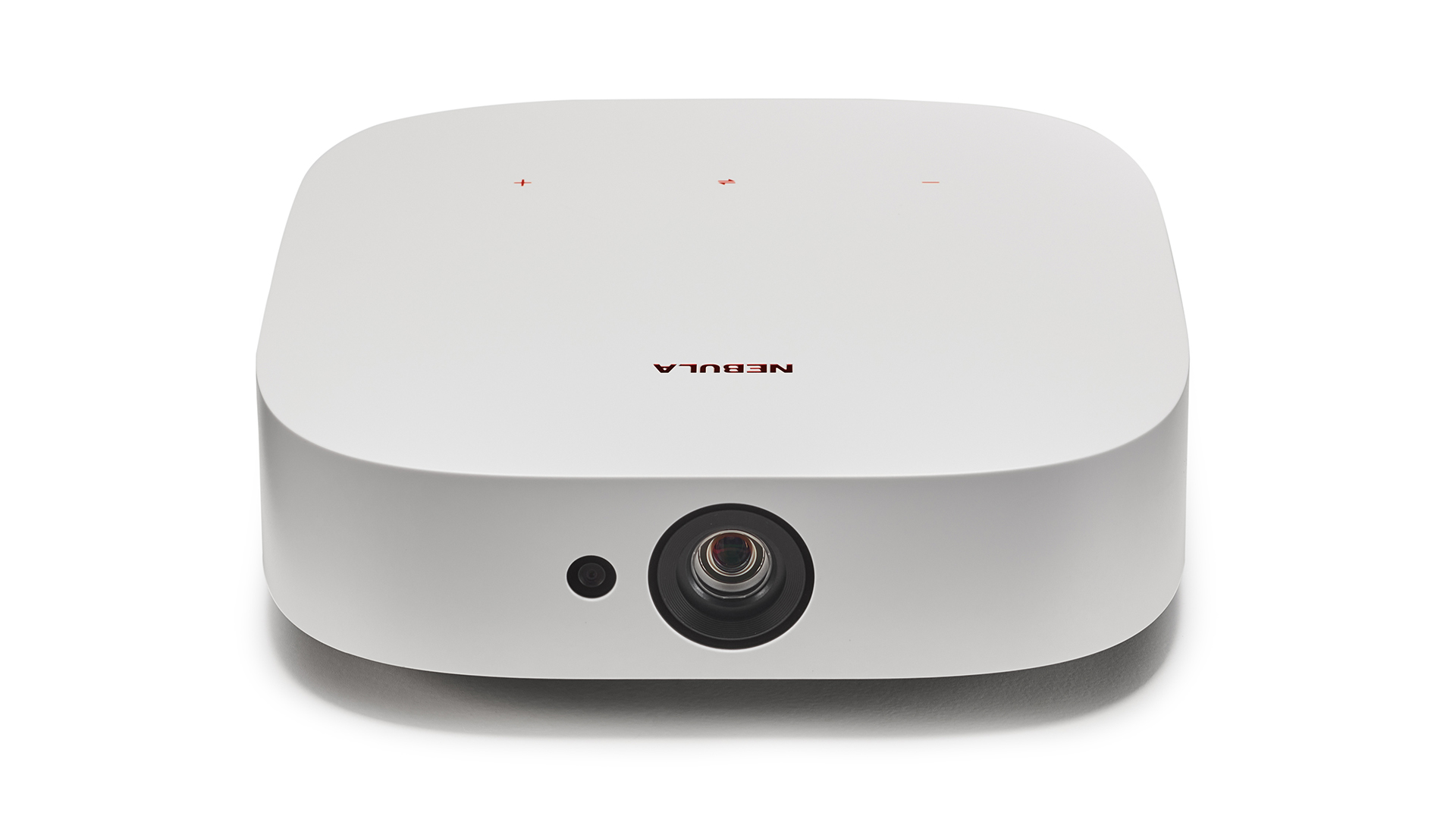
The Anker Nebula Solar Portable’s sound system is something of a flyweight, even in the portable projector world. That low power output means it’s too quiet – you need to push the volume right to the top to get it loud enough to entertain a small crowd. Doing that also brings with it the compromise of a touch of distortion.
That said, the sound on offer is generally well handled and entertaining enough at this price. While rear-firing to aim for the prime viewing position, the spread is decent all around the device. Anyone sitting nearby won’t struggle to hear dialogue, music and effects.
Voices come off particularly well. There’s plenty of meaning and pent-up emotion as a young Spock and his father discuss the youngster’s half-human parentage. The Solar Portable doesn’t quite have the dynamics to pull off genuine vocal texture, but there’s some dimension and clarity to the presentation.
Larger action sequences work pretty well too. There’s a clear sense of fun as the young Kirk speeds down the highway to the Beastie Boys’ Sabotage. The speakers’ precision and agility keep a compelling rhythm and are enough to stop the chaotic track from descending into a blur.
Unfortunately, there isn’t enough muscle to deliver real scale. The small speakers within this comparatively thin box don’t deliver much bass. Combined with the fairly average dynamic abilities, it means there’s never quite the level of impact we want, whether listening to music or looking for big moments of action.
Verdict
Anker poses an interesting problem with the Nebula Solar Portable. Priced similarly to the lower resolution Nebula Mars series, it leaves the buyer two different options for the same budget. Would you rather spend that money on the Solar Portable with its 1080p HDR picture, more usable OS and portable form, or opt for the brighter, bulkier Nebula Mars 2, which delivers far bigger sound from its 2x 10W system?
Given that audio is easily outsourced to an external device, we’d suggest that the Solar Portable is the way to go. It has an excellent picture for the money and is simple to operate and set up. If your budget can stretch further, we’d recommend something like the Epson EF-12 or the non-portable Epson EH-TW700 but, at this price, we haven’t seen better. We can imagine the Solar Portable becoming the first thing you reach for each time you pack your rucksack.
SCORES
- Picture 4
- Sound 3
- Features 4
MORE:
Read our guide to the best projectors
Read our Anker Nebula Mars 2 review
Read our Epson EF-12 review
Want to know how to set up an outdoor cinema?
What Hi-Fi?, founded in 1976, is the world's leading independent guide to buying and owning hi-fi and home entertainment products. Our comprehensive tests help you buy the very best for your money, with our advice sections giving you step-by-step information on how to get even more from your music and movies. Everything is tested by our dedicated team of in-house reviewers in our custom-built test rooms in London, Reading and Bath. Our coveted five-star rating and Awards are recognised all over the world as the ultimate seal of approval, so you can buy with absolute confidence.

